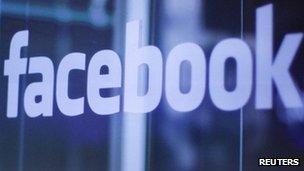Facebook raises share price range after strong demand
- Published

Facebook was founded in 2004 and now has 900 million users
Facebook has raised the price at which it hopes to sell its shares from $28-$35 to $34-$38, potentially putting its total value above $100bn (£62.2bn).
The company said strong demand had pushed up the price. Trading in the shares is expected to begin on Friday.
A valuation at this level would make it worth more than the US corporate giants Disney, Ford and Kraft Foods.
The eight-year-old social network has 900 million users worldwide and made a profit of $1bn last year.
If investors buy the shares at the mid-point of $36, Facebook would raise $12.1bn through its planned sale of 337.4 million shares.
Despite the strong interest, a Facebook team is continuing to tour the US with an investor road show, a move undertaken by companies to drum up demand ahead of a sale of new shares.
Facebook is set to list on the Nasdaq and its value will rival Amazon's current worth of $100bn.
Facebook founder and chief executive Mark Zuckerberg will remain in control of the company even after the flotation, controlling more than 57.3% of the voting power through shares he holds and through voting agreements with other shareholders.
The intense interest in the share issue comes despite doubts about the company's ability to make steady profits from social networking.
Although Facebook makes money, profits are currently just 1% of the market value implied by the forthcoming flotation.
Last month, Facebook reported its first drop in revenue between quarters for two years.
It has sought to allay those concerns, pointing to mobile as an area for growth that the company will invest heavily in.
Facebook is in the process of buying the fast-growing mobile phone photo sharing app Instagram for $1bn, its largest purchase ever.
The BBC's technology correspondent, Rory Cellan-Jones, says it is unclear how the company can make money from mobile apps.
Small shareholders
Many private investors are unlikely to be able to buy as many shares as they want.
Major stock market listings of private companies generally have only a small allocation of shares for private investors of up to 20%.
Individuals hoping to buy ahead of open trading must register with a broker, if they do not already have one, and put in a formal request.
The brokers themselves have to wait to see how many shares they will be allocated from one of the leading investment companies underwriting the issue.
In the US, online broker Fidelity, which will be getting its shares from one of the underwriters, Deutsche Bank, says customers should have $500,000 (£312,000) in their accounts and have made 36 trades in the past year to be eligible.
Other companies' account requirements are a bit less onerous, but still require customers to have made a number of trades and have a substantial sum of money in their accounts.
Even if a customer meets the requirements, there is no guarantee they will get any shares.
- Published14 May 2012
- Published3 May 2012